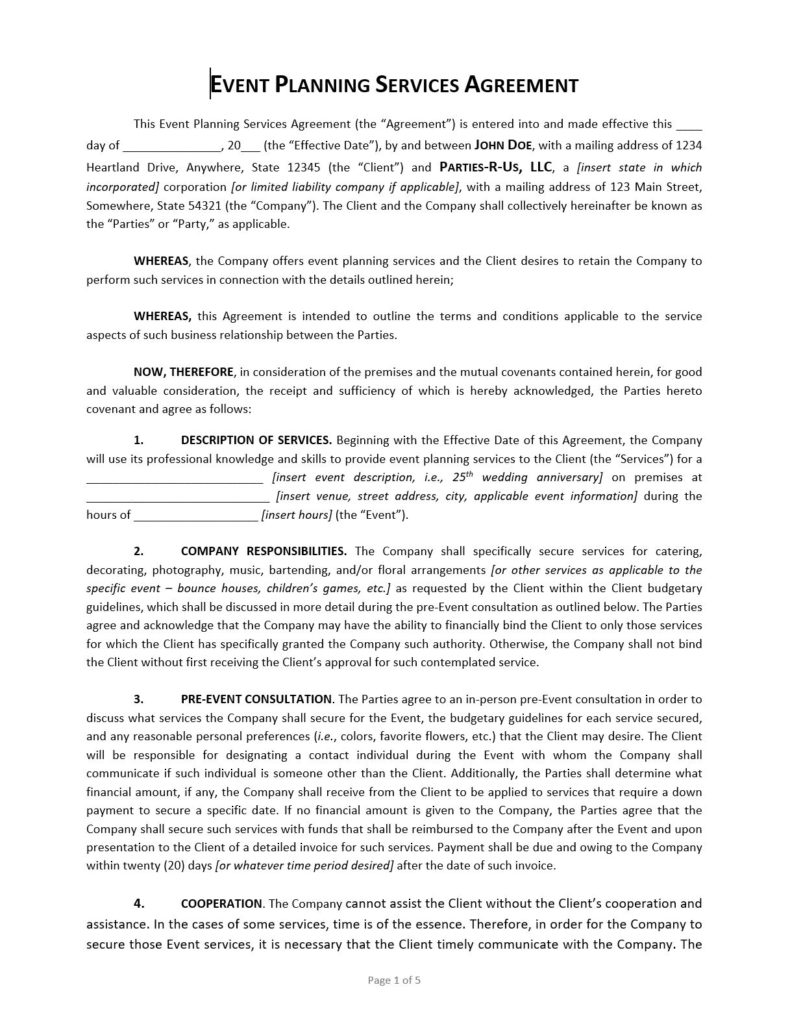
If you expose your business partners to too much risk, they may not want to sign your contract. Event contracts with your vendors and hotel partners need to be mutually beneficial. Liz’s thoughts are, you could, but it may be difficult to get vendors or hotel partners to sign off on them.

But we did ask our own expert about loading your contracts with this type of language. Phrases like “situations beyond the control of both parties” or “financially impractical” could help you cover your liability above and beyond a force majeure clause.Īgain, we’re not dishing out legal advice. If you’ve done some research into this, you’ve likely seen suggestions around using additional language in your contracts to cover as many potential issues as possible. So how do you protect yourself from unforeseen circumstances and financial risk? Event-Planning Contract Best Practices A threat of a storm might cause an increase in attrition rather than be viewed as cancelable under this clause. It can be hard to prove that your attendees absolutely can’t get to your destination due to weather issues.

So, while it’s important to include in your contract, the execution can be difficult. Other events that conflict with your event Flight delays or transportation problems More commonly, you will encounter complications not covered under your basic force- majeure clause, like a global pandemic or: In Liz’s experience, it’s not a catastrophic event or “Act of God” that is most likely to impact your event. However, she added, applying a force majeure clause for an event cancellation is difficult and rarely occurs. Liz reiterated that the force majeure clause is necessary in case something catastrophic impacts your event.

What are its limitations to coverage?Īgain, we asked our expert event planner about her experiences with force majeure clauses. This clause can help cover your vendor and hotel liabilities in case the worst happens and you need to cancel your plans due to a catastrophic event. Our expert, Liz, told us that the clause is standard in most event-planning contracts, and if it isn’t already, should be part of your contract language. The purpose of the force majeure clause is to cover your liability if you need to cancel an event due to unforeseen acts of nature like earthquakes, floods, hurricanes, tornadoes, or volcanoes

She knows her way around an event-planning contract and was kind enough to lend us her expertise.īut before we dive in too deep, what is a force majeure clause? Force Majeure Clauses Defined for Event PlannersĪccording to, force majeure means “superior force.” In the world of event-planning, planners know force majeure as the “Act of God” clause. Liz Lonsbrough, the owner of L Squared Events, has created top notch and unique domestic and international events for nearly 20 years. And to get you the best advice possible, we’ve recruited an industry expert to help us out. While we’re not lawyers offering legal advice on contracts, we want to make you aware of some best practices concerning contract language. We want to help you wrap your head around the force majeure clause and give you some useful contract-creation pointers. Do your event-planning contracts contain a force majeure clause? Are you familiar with what the clause covers and how it protects your business? Is it enough to cover you for anything that can go wrong with your event in case you need to cancel?


 0 kommentar(er)
0 kommentar(er)
